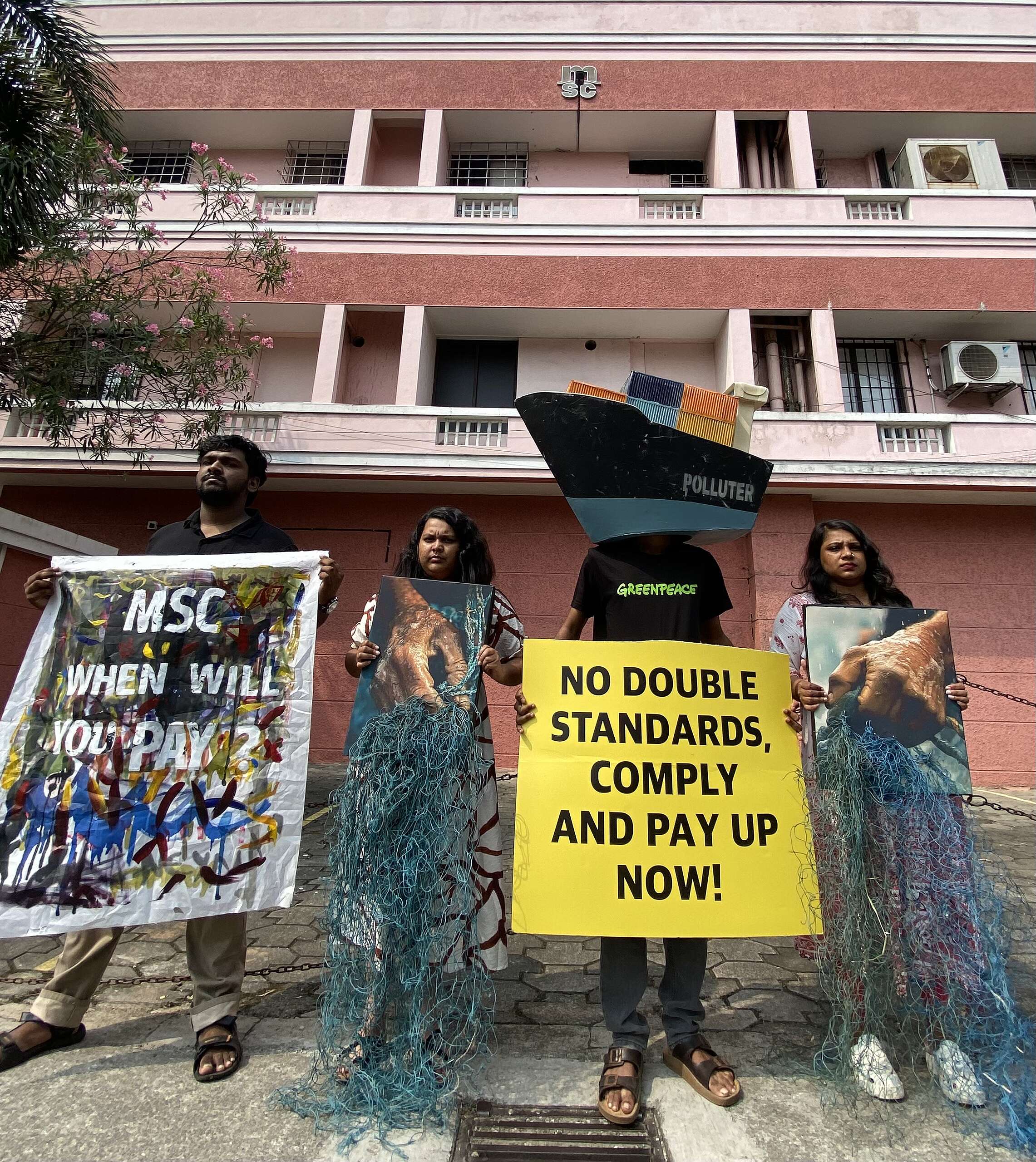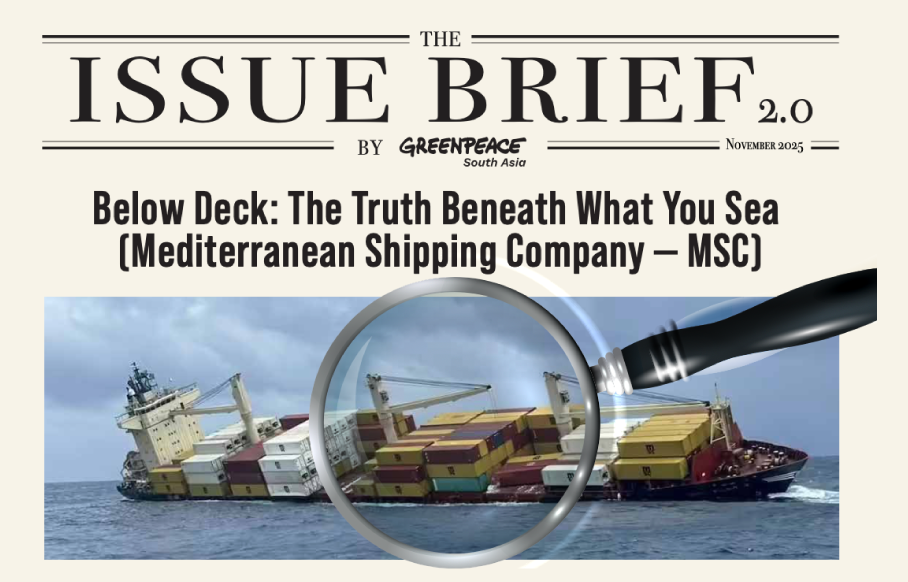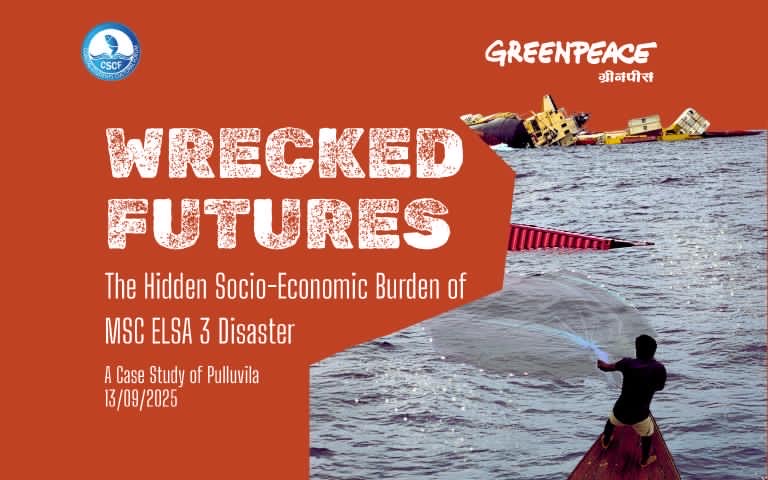The recent capsizing and sinking of the container ship MSC ELSA 3 off the coast of Kochi — just a few days after the X-Press Pearl Disaster’s 4th anniversary — has triggered a grave environmental and humanitarian crisis. The vessel, which departed from Vizhinjam Port en route to Kochi, was carrying 640 containers, including hazardous cargo and potentially explosive calcium carbide. This accident has unleashed various environmental risks, including toxic oil spills and chemical leaks threatening marine life and coastal ecosystems. In the days following the wreck, plastic pellets have been discovered washing ashore along the Thumba coast in Thiruvananthapuram, and even up to Tamil Nadu’s Kanniyakumari district, warning of another widespread and long-lasting contamination that could also reach the Gulf of Mannar’s fragile ecosystems.
Yet, as is too often the case, it is the coastal communities who are left to bear the burden. While private companies profit, it is the people who pay with their health, their livelihoods, and their future. Local authorities are now forced to divert taxpayer money and resources to manage a disaster they did not cause. This injustice cannot continue. Greenpeace India calls for full transparency from government agencies and the MSC company to disclose the complete list of lost cargo. They should also consider immediate support measures for affected communities facing the current fishing ban, and above all, comply with strict accountability for the polluters in regards to long lasting impacts for marine life and the local economy. Environmental destruction must no longer be treated as the cost of doing business.



